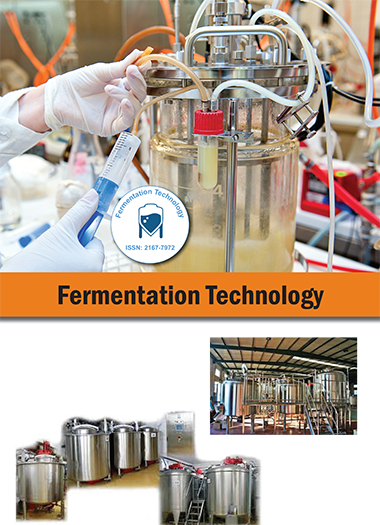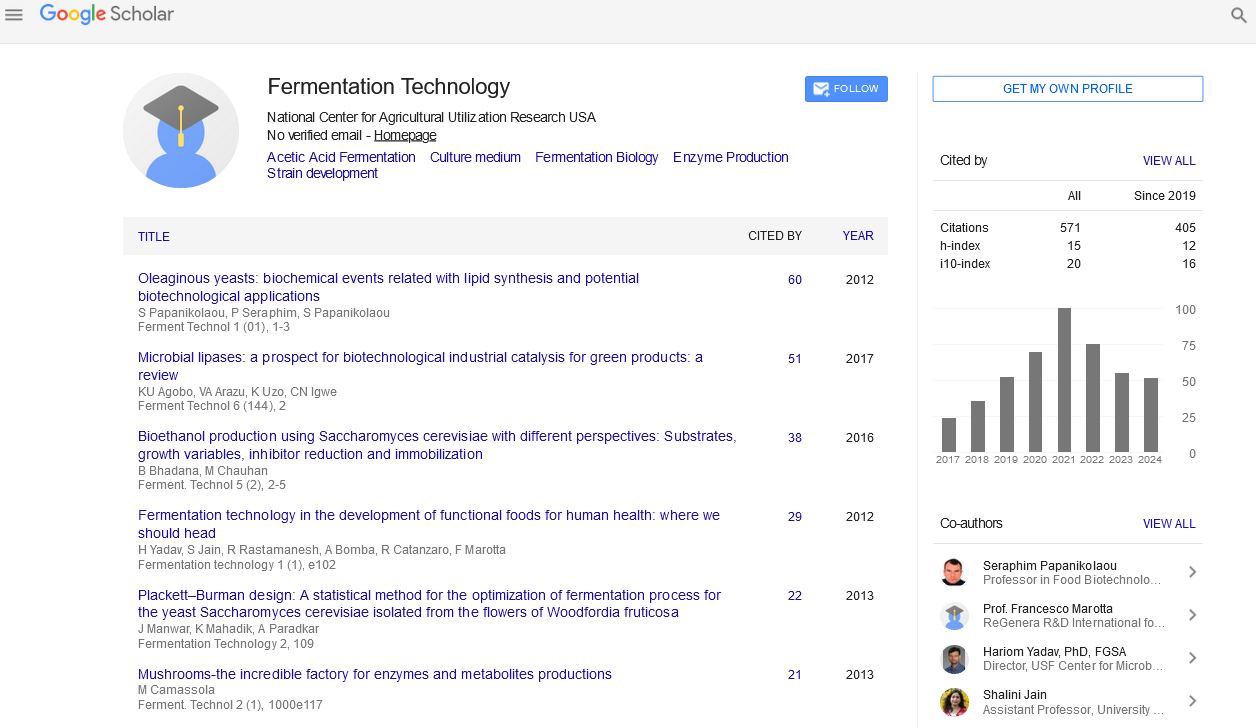Indexed In
- Open J Gate
- Genamics JournalSeek
- Access to Global Online Research in Agriculture (AGORA)
- RefSeek
- Hamdard University
- EBSCO A-Z
- OCLC- WorldCat
- Publons
Useful Links
Share This Page
Journal Flyer

Open Access Journals
- Agri and Aquaculture
- Biochemistry
- Bioinformatics & Systems Biology
- Business & Management
- Chemistry
- Clinical Sciences
- Engineering
- Food & Nutrition
- General Science
- Genetics & Molecular Biology
- Immunology & Microbiology
- Medical Sciences
- Neuroscience & Psychology
- Nursing & Health Care
- Pharmaceutical Sciences
Bacteriophages: New class of beneficial microbes and their practical applications
World Congress on Beneficial Microbes: Food, Pharma, Aqua & Beverages Industry
August 25-27, 2015 Valencia, Spain
Alexander Sulakvelidze
Intralytix, Inc., USA
Scientific Tracks Abstracts: Ferment Technol
Abstract:
Probiotics offer the promise of health benefits by altering the commensal gut microbiota, and they continue to gain in popularity. However, one approach for a ‚??probiotic intervention‚?Ě that has not received much prior attention is to use lytic bacteriophages (or phages) to target specific pathogenic bacteria in the gastrointestinal (GI) tract, oral cavity, skin, etc., before they can cause disease. Lytic phages are bacterial viruses that attach to and kill their bacterial hosts by lysing them during their internal replication cycle. Bacteriophages are arguably the oldest (ca. 3.5 billion-years-old) and most ubiquitous organisms (1030-1032 phage particles) on Earth, and they have remarkable bactericidal activity against their specific bacterial hosts; i.e., phages attack their targeted bacterial hosts but cannot infect human or other eukaryotic cells. The approach of using lytic phages as part of a probiotic diet is similar to that used for bacteria-based probiotics, which are administered during a period of time and act by favorably conditioning the gut, mouth, skin, etc. microflora. The key difference between bacteria-based probiotics and lytic phage-based probiotics (designated ‚??phage-biotics‚?Ě) is that the former introduce nonpathogenic bacteria into the mammalian organism (in order to interfere with the ability of pathogenic bacteria to colonize and cause disease); whereas, the latter use lytic phage to kill specific pathogenic bacteria. Thus, bacteriophages represent a new class of beneficial microbes that may have a wide-range of practical applications in human and veterinary medicine, food safety, cosmetics, and other areas. The presentation will give the audience a current perspective about the history of bacteriophage therapy research and the crucial regulatory and human safety issues concerning the use of bacteriophages as phage-biotics. Phage-based probiotics are expected to have, because of their high specific activity, a very gentle effect on the overall microflora, which may further enhance their protective effects. They are also expected to be compatible ‚?? and, in fact, synergistic ‚?? with all classical bacteria-based probiotics. Thus, the phage-based probiotic approach may serve as a platform technology for developing a new class of super-probiotics for managing bacterial infections. Moreover, phage-biotics may be valuable tools for advancing our understanding of the important physiological roles that some normal flora bacteria have in the mammalian organism. That knowledge may help to identify new strategies for improving human health in areas not involving the prevention and treatment of bacterial diseases; e.g., reducing the occurrence of obesity and some forms of cancer, where the GI tract‚??s normal microbiota may have a role.
Biography :
Alexander Sulakvelidze, PhD is a Chief Scientist of Intralytix, and an internationally recognized expert in phage technology. He has published extensively on the subject of phage therapy, including co-editing a major book about bacteriophages in 2005. He is the author of several issued and pending patents in the field of phage therapy. He is currently serving as Editor-in-Chief of the Journal Bacteriophage, and as an ad HOC reviewer for several other journals and funding agencies.
Email: asulakvelidze@intralytix.com

